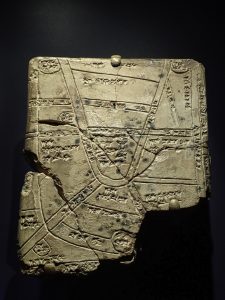
Overriding President Trump’s veto, Congress passed the National Defense Authorization Act on January 1,giving Department of Treasury one year to establish rules for the antiquities trade to mitigate the threat of money laundering and terrorist financing. See Section 6110. The law also tasks Treasury with determining the extent to which these rules should apply to art transactions. The new law promises to be a game-changer for market participants, who have operated with little government regulatory oversight – although high-level participants are already being cautious in antiquities transactions.
Activists have long urged federal and state legislators to tighten controls on the antiquities market, but little legislation appeared until reports started surfacing that artifacts looted in the Middle East were being sold on the black market to finance terrorism. An in-depth Senate report from mid-2020 on the art market and its relationship to U.S. sanctions enforcement identified this issue and argued for more anti-money laundering regulation, making it clear that Congress had set its sights on increasing scrutiny in the art and antiquities market.
The new law includes three primary directives. First, it amends the Bank Secrecy Act, 31 U.S.C. § 5312(a), making it apply to antiquities dealers, their advisors and consultants, and others involved in the antiquities trade – although what constitutes an “antiquity” for these purposes remains undefined. To ensure broad compliance with U.S. sanctions, persons and institutions engaged in the antiquities trade must file “suspicious activity” reports with Treasury when they see questionable practices, and they must also report any cash transactions over $10,000.
Second, the Act directs Treasury and the Department of Justice to conduct an assessment of the ways in which the broader art trade – i.e., beyond the trade in antiquities – facilitates money laundering and terrorist financing.
Third, the new law also requires antiquities dealers to identify and register the “ultimate beneficial owner” (i.e., the true owner) of limited liability corporations in an effort to combat collectors’ frequent use of offshore entities and shell companies to conceal their identities. While this information will not be made publicly available, the registry will make it easier for law enforcement and financial institutions to identify buyers. It remains to be seen whether litigants will be able to access these reports through subpoena.
While the new disclosure rules and costs of compliance may feel onerous to antiquities dealers accustomed to a mostly unregulated market, the new measures should help protect individuals and entities from inadvertently engaging with bad actors and will ultimately ensure a stronger marketplace. We can expect much debate over the next year as Treasury drafts and proposes the regulations called for under the new legislation.
If you or your organization needs legal advice with regard to the new law or other art and antiquities matters, please contact us.
Dr. Jennifer Morris is an attorney in the DC office of Cultural Heritage Partners.